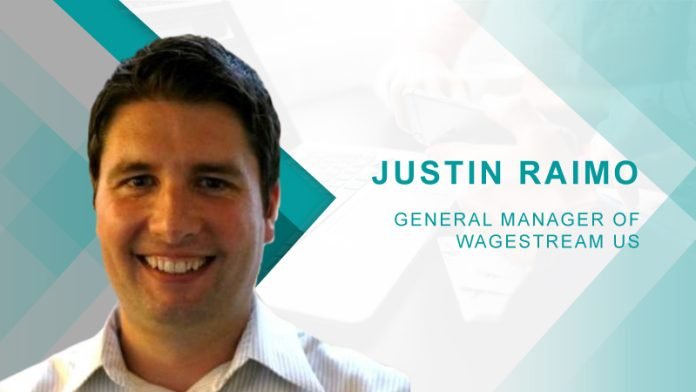Wagestream has experienced remarkable growth in the US market, with a 300% increase in the past six months. What factors do you believe have contributed to this rapid expansion, and what industries are you seeing the most interest from?
Our growth in the US market has been fueled by several factors. First and foremost, our platform resonates deeply with companies that prioritize the financial wellbeing of their employees. The ability to offer our financial benefits platform, especially in industries like retail, hospitality, and healthcare, has been a game-changer. We’re proud to have partnered with notable brands such as Crate & Barrel, Popeyes Louisiana Kitchen, and Burger King, and this expansion reflects a growing recognition across diverse sectors of the importance of financial empowerment for workers.
Wagestream’s platform focuses on providing financial benefits for low and middle-income workers. How does Wagestream address financial inequality, and what impact have you seen on the financial wellbeing of individuals who use your platform?
Wagestream’s mission is deeply rooted in addressing financial inequality by empowering low and middle-income workers. Traditional financial systems often overlook this demographic, leaving them vulnerable to high fees and inflexible products. Our platform flips that narrative by providing tools that offer visibility, control, and flexibility over finances. The impact has been profound. We’ve seen a significant increase in financial stability among users, with reduced reliance on payday loans and credit cards. Notably, 69% of staff feel more positively about their employer, reflecting the transformative effect of prioritizing financial wellbeing and 90% say their financial situation is now stable or has improved.
Why has financial resilience become so important for both talent attraction and retention?
Financial resilience is paramount for talent attraction and retention because it directly impacts employee productivity, engagement, and overall wellbeing. Studies have shown that financial stress can severely affect an individual’s ability to focus at work, leading to decreased productivity. By prioritizing financial wellbeing, organizations can create a positive workplace environment where employees feel supported and valued, ultimately leading to higher retention rates and improved talent attraction.
What key trends or transformations do you foresee in the field of Human Resources, particularly in the context of employee well-being and engagement?
It’s an exciting time for Human Resources and we anticipate a continued emphasis on benefits that offer flexibility, personalization, and control. While financial wellbeing will continue to dominate the space, trends that extend beyond this include all aspects of employee wellbeing, including flexible working arrangements and mental health support. Additionally, the integration of technology to enhance benefits offerings and improve employee engagement will be a key focus. We expect a shift towards proactive measures aimed at addressing holistic employee wellbeing, with financial wellbeing playing a central role.
What challenges do you anticipate organizations facing in the coming years, and how can they proactively address these challenges to foster a positive workplace environment?
We expect that organizations may face challenges related to adapting to rapidly changing workforce dynamics, technological advancements, and evolving employee expectations. Proactively addressing these challenges requires a commitment to understanding the unique needs of employees and implementing policies and benefits that prioritize their wellbeing. This may involve investing in training and development programs, fostering a culture of inclusivity and diversity, and leveraging technology to enhance communication and collaboration.
Can you share some specific examples of how Wagestream has positively impacted employee well-being and engagement within organizations?
Our impact on employee wellbeing and engagement has been significant. Across our client base of 1,000 employers, we’ve observed tangible improvements in core business metrics. For instance, there’s been an average increase of 11% in hours worked per week, a 16% reduction in employee turnover, and a 32% reduction in agency spend. Additionally, time-to-hire has improved by 27%. These outcomes highlight the transformative effect of prioritizing financial wellbeing and providing employees with tools to enhance their financial resilience.
What advice would you give HR professionals and business leaders striving to create a workplace culture that prioritizes employee satisfaction and overall well-being?
My advice is to prioritize understanding the unique needs and challenges of their workforce. This involves actively listening to employees, soliciting feedback, and implementing policies and benefits that reflect their priorities. Additionally, offering flexibility and control over work and pay is essential for fostering a positive workplace culture. By investing in employee wellbeing initiatives and maintaining open lines of communication, organizations can create an environment where employees feel valued, supported, and empowered to thrive.
Explore HRtech News for the latest Tech Trends in Human Resources Technology.

Justin Raimo General Manager of Wagestream US
Justin Raimo is a General Manager of Wagestream US. He is a successful leader with over 25 years of building businesses across multiple industries. He has a proven track record of success in media, entertainment, telecommunications, and finance organizations. Currently, Justin is leading the launch of Wagestream in the U.S., showcasing his commitment to fintech innovation in supporting Wagestream's mission to provide fair financial wellbeing benefits to America's hardworking frontline workforce.












